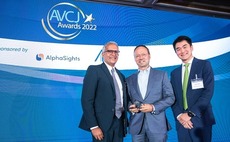
Investment: Southeast Asia's family footholds
By most measures, Southeast Asia is under-penetrated by private equity. If deal flow expectations are to be met, investors must tap local networks for openings in and around the family conglomerates
When Affinity Equity Partners acquired a significant minority stake in motorcycle distributor Mitra Pinasthika Mustika (MPM) for about $100 million last October it brought to an end the firm's three-year quest for an Indonesia deal. This effort had included hiring Morgan Stanley executive Inghie Kwik, son of a former Indonesian economics minister, to head up local operations.
Affinity wasn't alone among Asia's buyout firms in struggling to make a breakthrough. The Carlyle Group took even longer, eventually securing a minority interest in telecom tower operator Solusi Tuna Pratama (STP) around the same time, also paying about $100 million.
Carlyle had previously come close to landing a stake in GarudaFood but the deal floundered and the food and beverage producer ended up in a joint venture with Japan's Suntory instead. Industry sources say the private equity firm also lost out on mining services contractor Buma Resources and cable TV operators LinkNet. The first went to local GP Northstar Group and the second to CVC Capital Partners, a regional player with a well-established local operation.
MPM and STP were the two largest Indonesia deals completed by foreign private equity firms in 2012. They also came about through alliances with groups that have strong on-the-ground networks: Saratoga Capital - an Indonesian GP whose co-founder has longstanding ties with MPM management - was a co-investor on the first deal, while Southeast Asia-focused Southern Capital Group has links with STP.
The paucity of large-cap deal flow and the locally-ingrained nature of transactions when they do emerge, speaks volumes for the challenges of doing business in Indonesia, and it holds true for Southeast Asia as a whole. Apart from Vietnam, every market is characterized by highly condensed corporate ownership, which places a premium on who you know.
"I think many Southeast Asian countries are similar in that there are a lot of family-owned companies," says Ashish Shastry, managing partner at Northstar Group, a Southeast Asia-focused firm with a strong presence in Indonesia. "Many of these family-owned companies are in multiple businesses lines and I think that is a feature in a lot of these economies."
A tough nut
The inherent difficulties in navigating these tangled webs of ownership might explain why private equity opportunities in Southeast Asia - frequently cast against the size of the regional economy and its constituent parts - often flatter to deceive. While plenty of firms want to make a breakthrough, relatively few historically have succeeded.
"The Southeast Asia market is perhaps smaller than people imagine, given the size of population," says Marcus Thompson, CEO of GP Headland Capital Partners. "So the number of active players in the market is quite small too."
According to AVCJ Research, private equity investment in Southeast Asia as whole is at comparatively low ebb. So far this year the region has seen around $2.9 billion transacted across 125 deals, down from $3.8 billion across 134 deals for 2012 in full. This is a poor showing given that, in each of the four years following the 2007 peak of $13.4 billion, deal flow surpassed $7 billion.
Put in a macroeconomic context, the region's potential is indeed huge. Indonesia may have a GDP of $878 billion and a stock market capitalization of just over $512 billion as of May, but private equity investment from 2009 onwards stands at $4 billion. China's economy is about 10 times larger and it has seen 27 times more PE investment over the corresponding period.
Singapore, as the region's most developed market, punches above its weight in economic terms. GDP came to $274 billion in 2012 but the country has seen $15.5 billion in PE investment in the last five years, with 67 deals last year. Thailand, the Philippines, and to a slightly lesser extent Malaysia, fall into the same underpenetrated category as Indonesia.
Crucially to the big pan-Asian funds, Southeast Asia has seen on average 14 transactions of $100 million or more over the last five years. As a proportion of total deal value, these transactions are currently at a five-year low.
One of the major reasons for the lack of correlation between GDP and private equity investment is the scarcity of high-quality assets that are both investible and accessible. Southeast Asia's emerging economies are rife with transparency, corporate governance and corruption problems.
"The vast majority of companies are probably not investment grade so finding the jewels in the crown can be quite a labor-intensive process," says Mark Thornton, managing director of Indonesia Private Equity Consultants (IPEC) who until 2011 was head of Southeast Asia at 3i Group. "Once you do find a good investable asset, the owners realize they have something with scarcity value."
As a result, valuations therefore have soared. Indonesia's financial services sector, which has attracted huge interest from Asian strategic investors, is a case in point. Deal advisory professionals claim the drop-off rate between formal negotiations and closed transactions is higher than any other market in the region - in part because the sellers are under no real pressure to sell and simply walk away if the valuation isn't right.
Carlyle's experience with GarduaFood followed a similar path, the PE firm reportedly putting in a bid of around 20x EBITDA only for the Indonesian player to opt for the Suntory joint venture that didn't require the sacrifice of as much equity. More recently, a stake in hospital chain Siloam was put on the block in expectation of bids of at least 20x EBITDA. The owner, the Riady family's Lippo Group, wasn't satisfied with the result so took the business public instead.
Relationships matter
Those GPs who have been able to close deals at acceptable valuations often do so by leveraging connections with family owners.
CVC first teamed up with Lippo in 2010 when it purchased a 72.6% stake in Matahari Department store from the group an enterprise valuation of $892 million - still Indonesia's largest ever PE deal. The deal was structured as a joint venture, with CVC holding 80% to a Lippo-controlled unit's 20%. They sold nearly half of their holding via a share offering earlier this year that valued the business $3.3 billion.
One year after the Mathari deal closed, the Riadys decided to sell a stake in LinkNet, a subsidiary of Lippo-owned First Media. CVC prevailed in the auction, paying $275 million for a 33.94% stake in the company and then taking its holding to the 49% foreign ownership ceiling.
"A handful of firms were invited into the Link Net process but they ended up working with us because of the relationship and the comfort level," says Sigit Prasetya, managing partner at CVC.
The opportunity to source deals from family conglomerates - and to make sizeable investments alongside them - are there, but they remain a rarity.
"The challenge has always been how GPs work with these businesses, how they communicate and how they pitch the value creation they can bring to these family businesses, which are usually quite closely knitted," says Tok Hong Ling, PE leader with PricewaterhouseCoopers in Singapore.
MPM is a good example of just how knitted these businesses can be. According to industry sources, Edwin Soeryadjaya, Saratoga's co-founder, already held an interest in the business because his father, the late William Soeryadjaya, helped set it up in the 1980s.
MPM's origins can be traced back to Astra International, a diversified industrial conglomerate co-founded by Soeryadjaya senior and now controlled by Jardine Matheson Group. Astra's interests include a joint venture with Honda that is responsible for the domestic distribution of motorcycles and parts. One of the territories that falls outside Astra's remit is east Java, where MPM is the sole licensee.
The Astra connection is also prevalent, albeit indirectly and informally, at Northstar. Theodore Rachmat, father-in-law of Northstar co-founder Patrick Walujo, was William Soeryadjaya's nephew and served as a senior executive at Astra. The largest PE deal in Indonesia last year - topping Affinity and Carlyle - was Northstar's $200 million investment in palm oil producer Tiputra Agro Parsada (TAP) alongside GIC Private. TAP is owned by Rachmat and Benny Subianto, another former Astra executive.
Despite these family ties, Northstar - which has made 12 investments in Indonesia and is currently looking to raise $1 billion for its latest Southeast Asia-focused fund - prides itself on having a strong local network.
"A big difference in the way we position ourselves is that we are a group that is owned by locals and controlled by locals," says Shastry. "If you go to our office in Jakarta you won't see a single person wearing a suit and tie, that's because they will be wearing batik."
He adds that Northstar's local knowledge helps the firm understand entrepreneurs' needs and build trust in the business community. It is an important consideration given local entrepreneurs may be more suspicious of foreign investors with a fly-in fly-out approach who are unable or unwilling to commit to a permanent presence in the country.
This filters through to the mid-market space throughout Southeast Asia that has consistently provided the bulk of private equity deal flow. According to AVCJ Research, sub-$25 million deals have accounted for at least 60% of all transactions in the region, rising to nearly 70% for the first 10 months of 2013.
The role played by the large family conglomerates in this area is one of competing capital provider. With ample cash reserves and strong relationships with local banks, these companies represent an attractive alternative source of capital for entrepreneurs. A local network can help offset this threat, although a number of industry participants aren't convinced by its validity - many small business owners want to remain free from a strategic agenda.
"Sometimes an entrepreneur wants to stay in the business and grow it with a view to an IPO," says Luke Pais, managing director with Ernst & Young in Singapore. "They do not see the value in a big strategic investor because such groups may constrain their ability to do a subsequent transaction. They may actually prefer to get a financial investor because the goals are aligned."
"I think that private equity can find a role alongside conglomerates but more importantly I feel they have a role as competitors in providing capital," says Gerald Baldivia, managing director at Angeon Advisors, a Philippines-focused GP. "Some of the target firms we have looked at have been wooed by conglomerates but they are actually looking for alternative funding that will more or less preserve the strategic independence of the business."
A private equity investor can also offer support in situations where a target business needs to diversify into foreign markets or recruit foreign talent. A partner with a regional presence makes sense in these situations.
A typical example of this is Headland's investment earlier this year in Malaysian snack firm Mamee Double Decker, which is controlled by the Pang family. The PE firm took a significant minority stake in the company and helping to move manufacturing to Indonesia and look for marketing synergies with neighboring countries.
"Although it's a family company, we are having influence in terms of strategy and the direction the company is headed," says Headland's Thompson. "The management team is also excited about the initiatives we have agreed on and are in the process of executing."
The partner proxy
While these kinds of opportunities may be too small for larger buyout firms, partnerships with mid-cap players remain an option. The mid-cap fund can invest in a target company, develop scale, and then bring in or sell out to a counterpart higher up the food chain. Alternatively, they could simply co-invest when the mid-cap GP identifies an opportunity that is too large for it to address independently.
Where CVC's Prasetya and Affinity's Kwik are examples of local investment bankers who have brought deal sourcing expertise into the private equity world, TPG Capital relied on an association with Northstar. The global firm entered its Indonesian counterpart's early funds as an LP and has co-invested in a number of deals.
Perhaps the most significant fruit of this partnership is Bank Tabungan Pensiunan Nasional. The PE firms acquired a 71.6% stake in the Indonesian lender for $200 million in 2007, bringing in a few co-investors. They took the bank public, diluting their share to 57.9%, and in May Japan's Sumitomo Mitsui Banking Corp. agreed to pay $1.56 billion for a 40% stake, pending regulatory approval. Most of the shares will come from the Northstar and TPG consortium.
Prior to this partial exit, the relationship between the two parties was formalized through a share swap agreement - with TPG is now believed to own 10-20% of Northstar, while Northstar owns less than 0.5% of TPG.
It is unclear whether anyone will be able to replicate this arrangement - as it stands, the pool of indigenous Southeast Asian or Indonesian GPs isn't that deep - but there may be variations upon the theme.
"By partnering with regional and global funds, smaller players are able to gain access to larger deals," says Luke Pais, managing director with Ernst & Young in Singapore. "So they may lead the discussion and create the relationship but then be able to take a bite of the transaction and farm out the remainder to a bunch of partners."
SIDEBAR: Vietnam - State of transition
McDonald's announcement earlier this year that it would open its first branch in Vietnam - with Henry Nguyen, managing partner of IDG Ventures Vietnam as local partner - spoke volumes for how far the country has developed since introducing economic reforms 25 years ago.
State-owned enterprises (SOEs) continue to dominate large swaths of the economy, but in the last decade private enterprise has put down roots. Recent arrival Ronald McDonald may be the most obvious face or capitalism, but private equity has already carved a niche in Vietnam. The approach is, by necessity, unique in Southeast Asia.
"One of the legacies of state ownership is that people are used to making money by getting kickbacks on their purchases and that is kind of endemic in the culture," says Chris Freund, a partner with local GP Mekong Capital. "So if people want to sell to state-owned companies or to the government it can be quite difficult."
It is partly for this reason that Mekong, like many GPs, focuses on the consumer space, where few former SOEs operate and businesses tend to be run by the new generation of entrepreneurs. Mobile World - a mobile phone retail chain in which Mekong invested $3.5 million in 2007 and partially exited to CDH Investments in March, generating an 11x return - is a good example.
"There were five co-founders and they all had relevant backgrounds relating to telecom or business management," says Freund. "In many cases entrepreneurs who have worked foreign companies or overseas are going to be much more open minded about finding better ways to do things and adopting best practices."
However, this is not to suggest there are no lucrative deals involving former SOEs. Vina Capital, another local GP, invested around $4 million in dairy producer VinaMilk over two transactions in 2003 and 2004, as did Dragon Capital in 2003. Valued at $500 million in 2005, the company is worth $5.5billion today.
"The beauty of this whole thing is the privatization process allows the manager and employee to become shareholders of the business they work for," says Andy Ho, managing director and chief investment officer at VinaCapital. "In doing so it turns on the entrepreneurial spirit which mobilizes employees to focus and concentrate their efforts in building the business."
Nevertheless, Vietnam remains a nascent market. According to AVCJ Research, $577 million has been transacted across eight deals this year - the third-highest annual total on record - but most of it came from two deals. KKR committed $200 million to Masan Consumer Corp, doubling down on a $159 million investment made in 2011, and Warburg Pincus paid the same amount for a 20% stake in shopping mall developer Vincom Retail.
However, large cap deals of this nature remain few in number. The market will continue to be dominated by local players chasing smaller deals for the foreseeable future. "There are a lot of investors interested," says VinaCapital's Ho. "But if you don't have the boots on the ground most of the time your investments will end in tears."
Latest News
Asian GPs slow implementation of ESG policies - survey
Asia-based private equity firms are assigning more dedicated resources to environment, social, and governance (ESG) programmes, but policy changes have slowed in the past 12 months, in part due to concerns raised internally and by LPs, according to a...
Singapore fintech start-up LXA gets $10m seed round
New Enterprise Associates (NEA) has led a USD 10m seed round for Singapore’s LXA, a financial technology start-up launched by a former Asia senior executive at The Blackstone Group.
India's InCred announces $60m round, claims unicorn status
Indian non-bank lender InCred Financial Services said it has received INR 5bn (USD 60m) at a valuation of at least USD 1bn from unnamed investors including “a global private equity fund.”
Insight leads $50m round for Australia's Roller
Insight Partners has led a USD 50m round for Australia’s Roller, a venue management software provider specializing in family fun parks.








